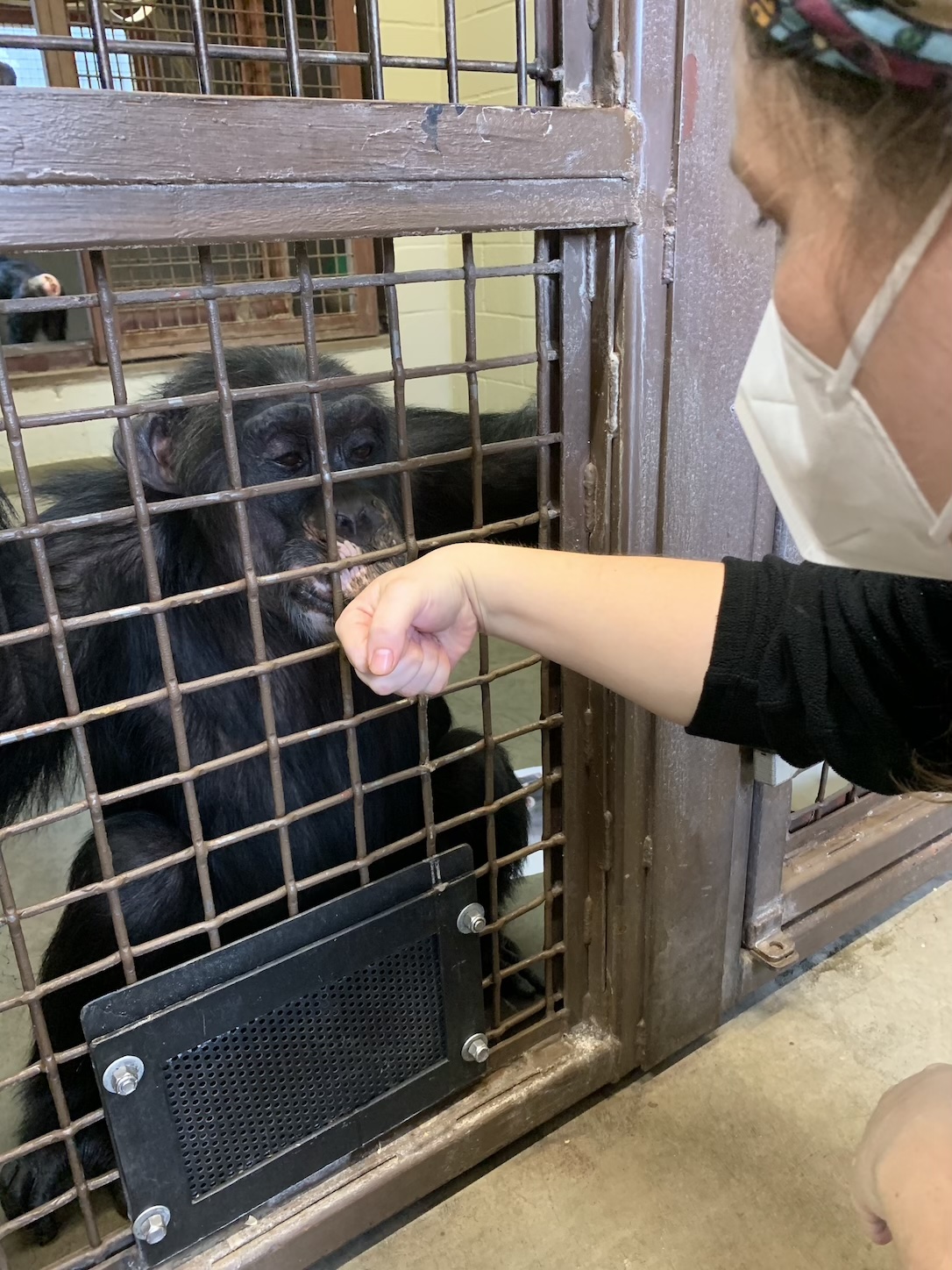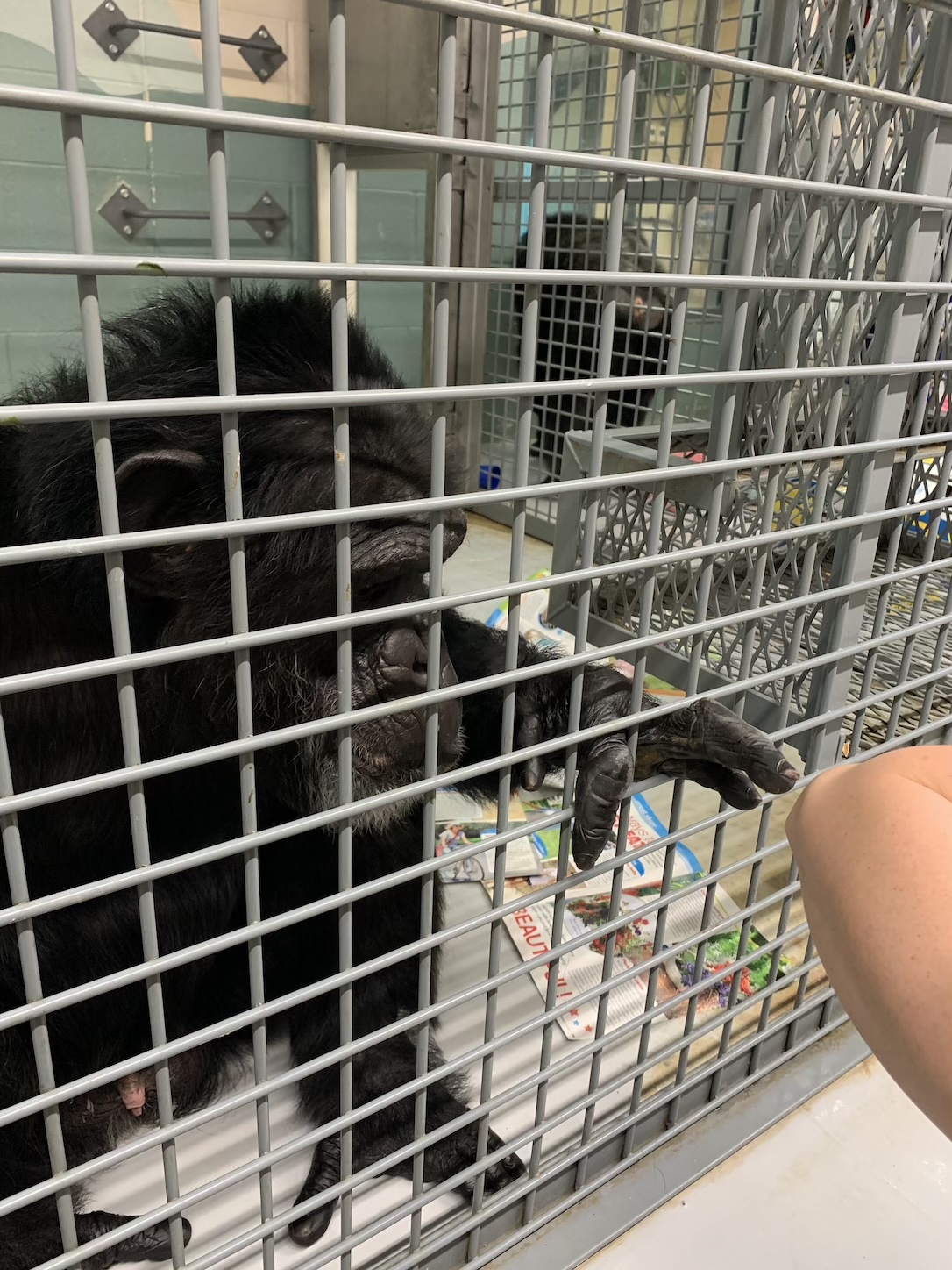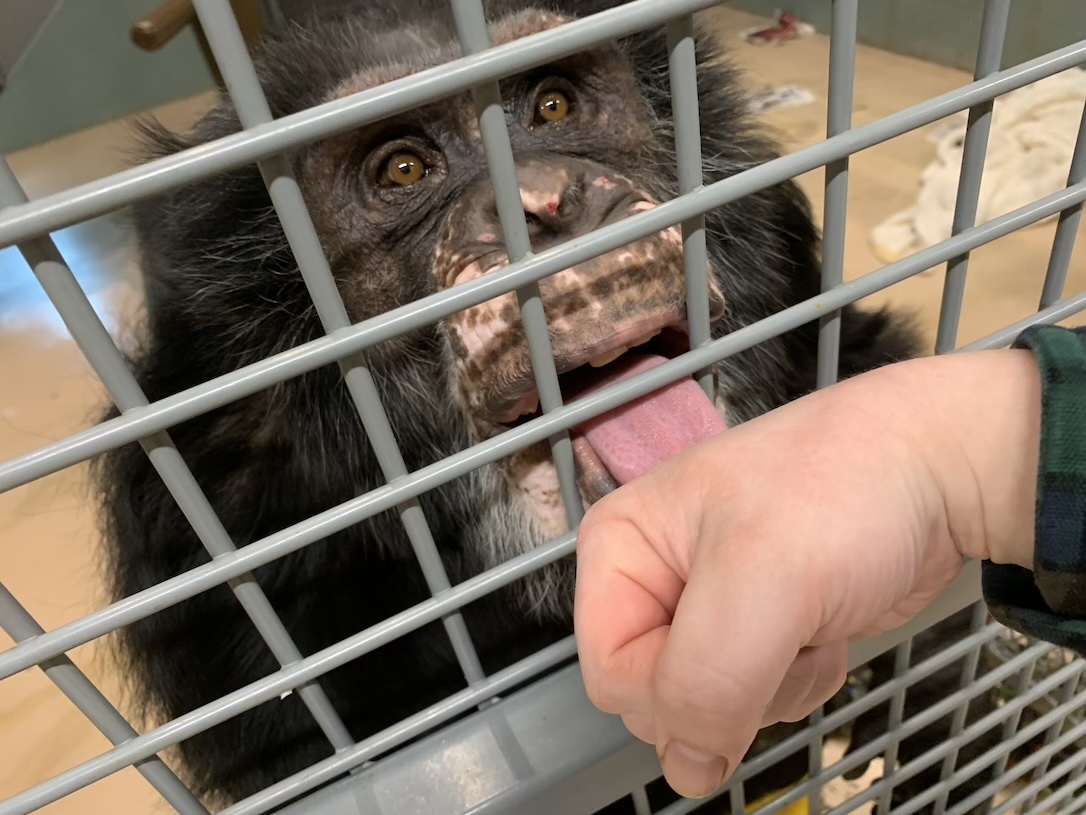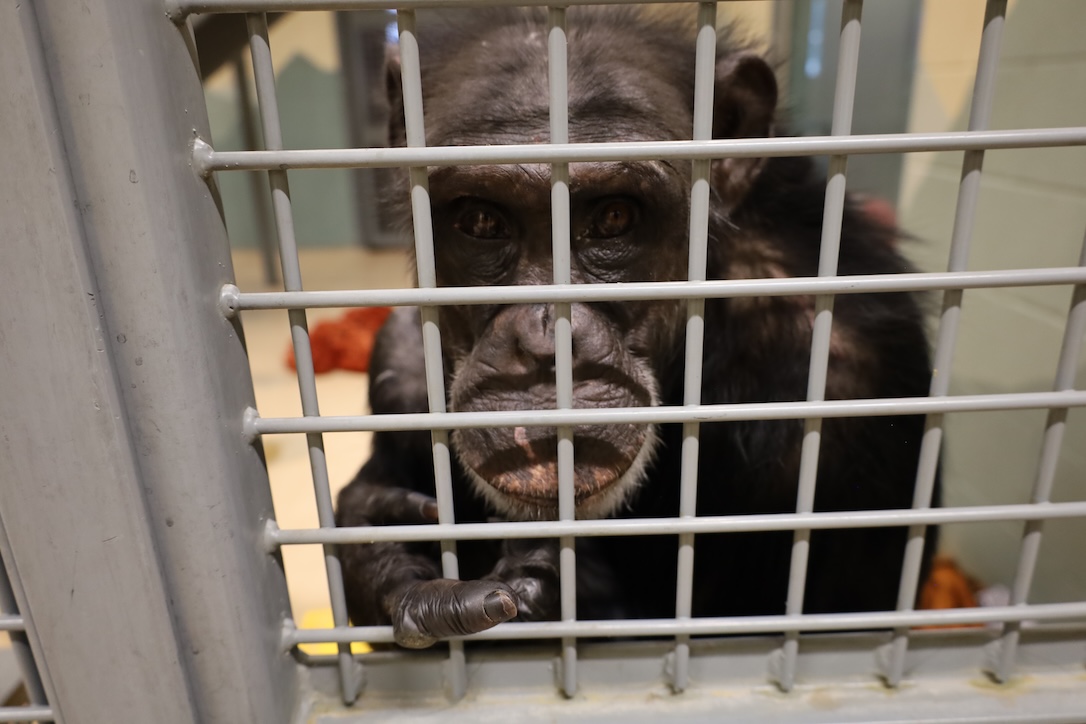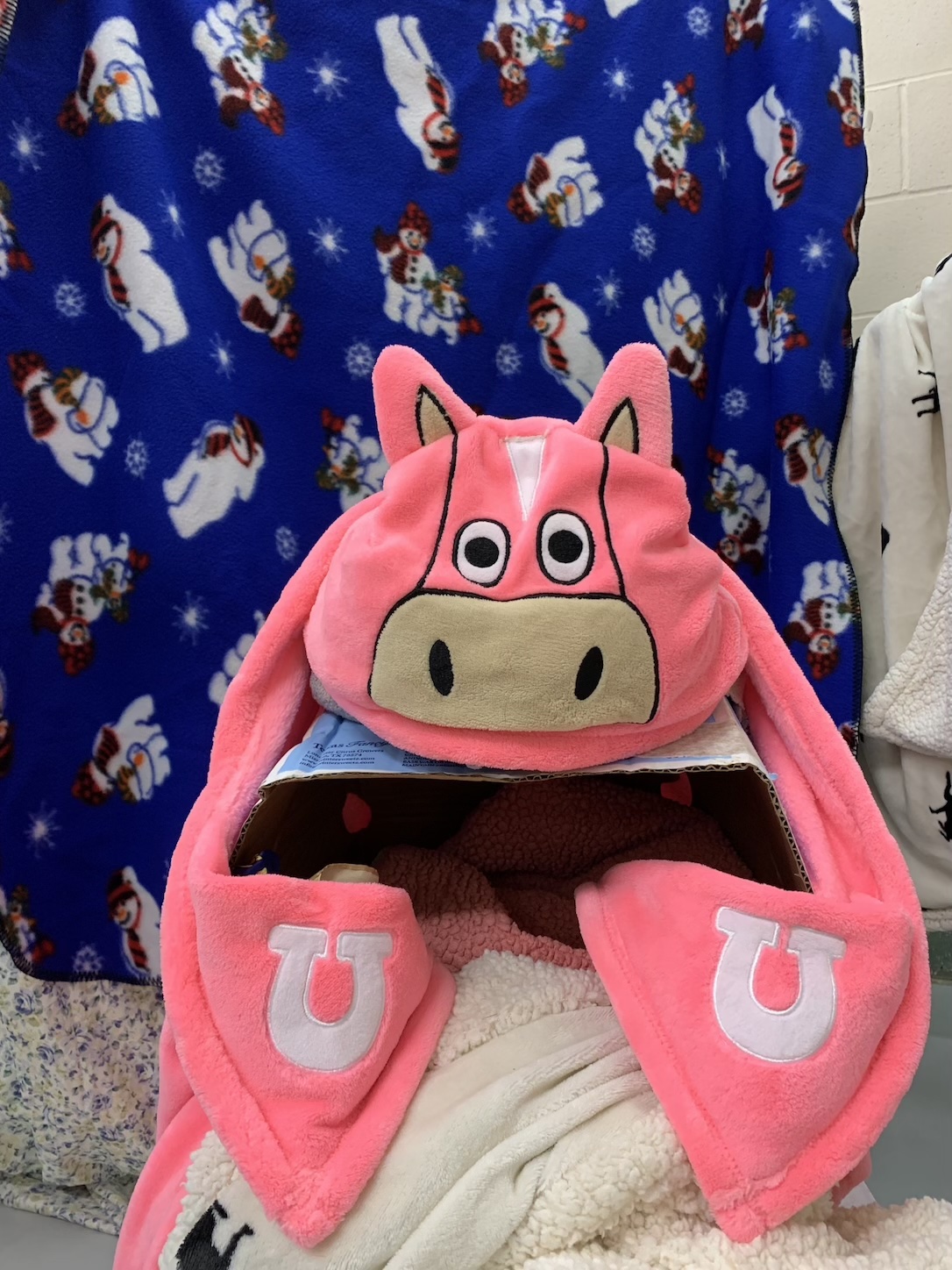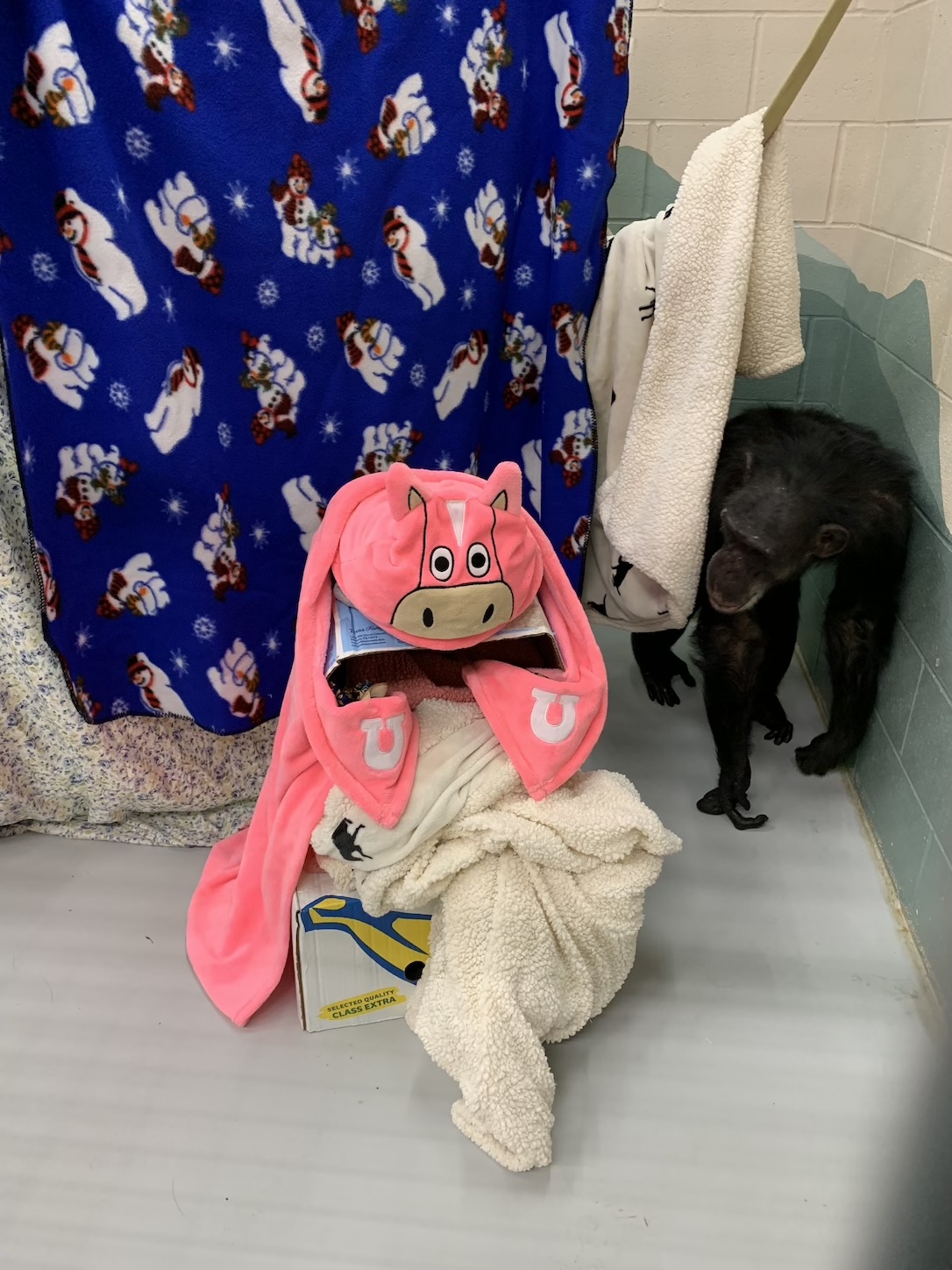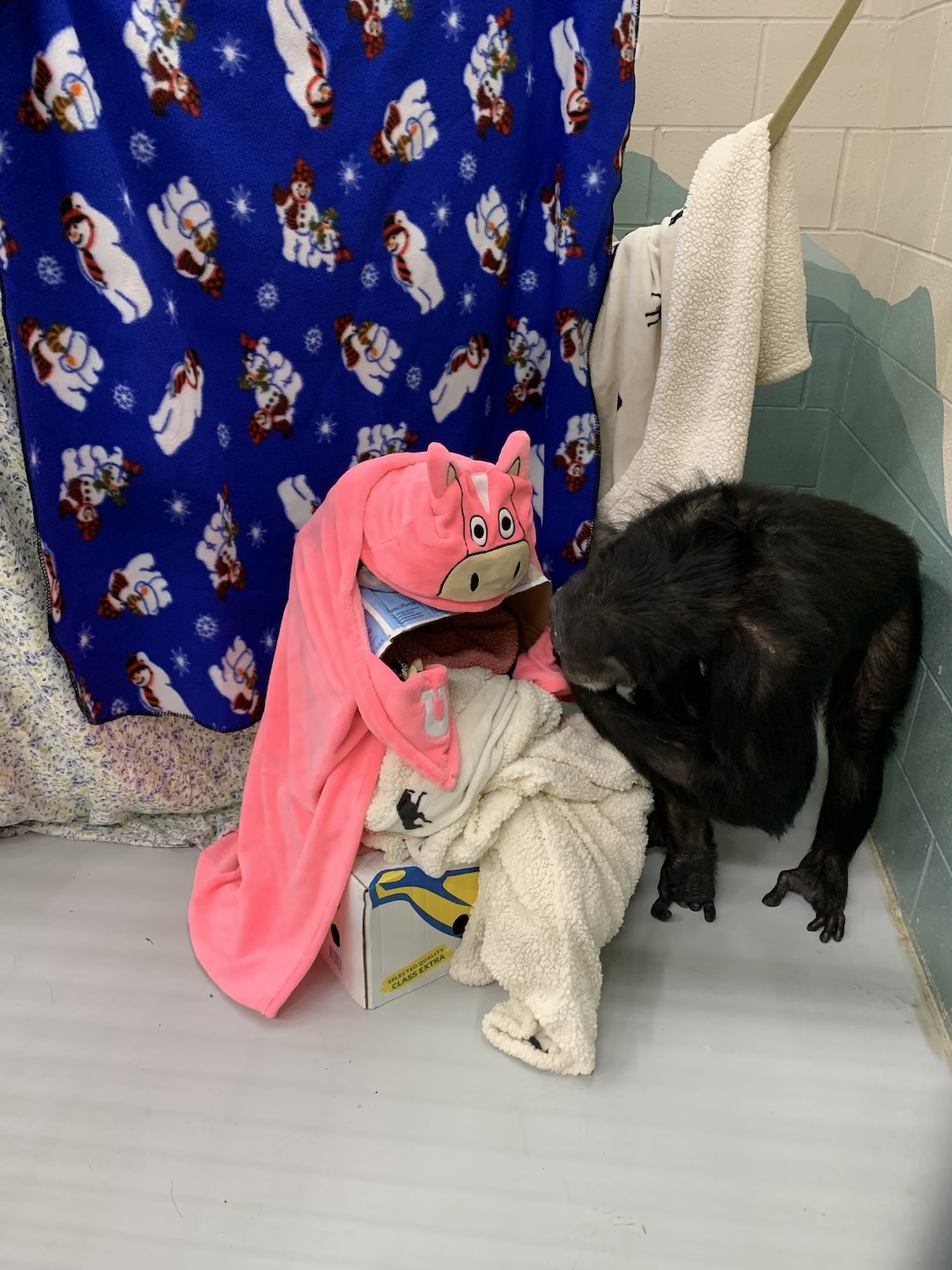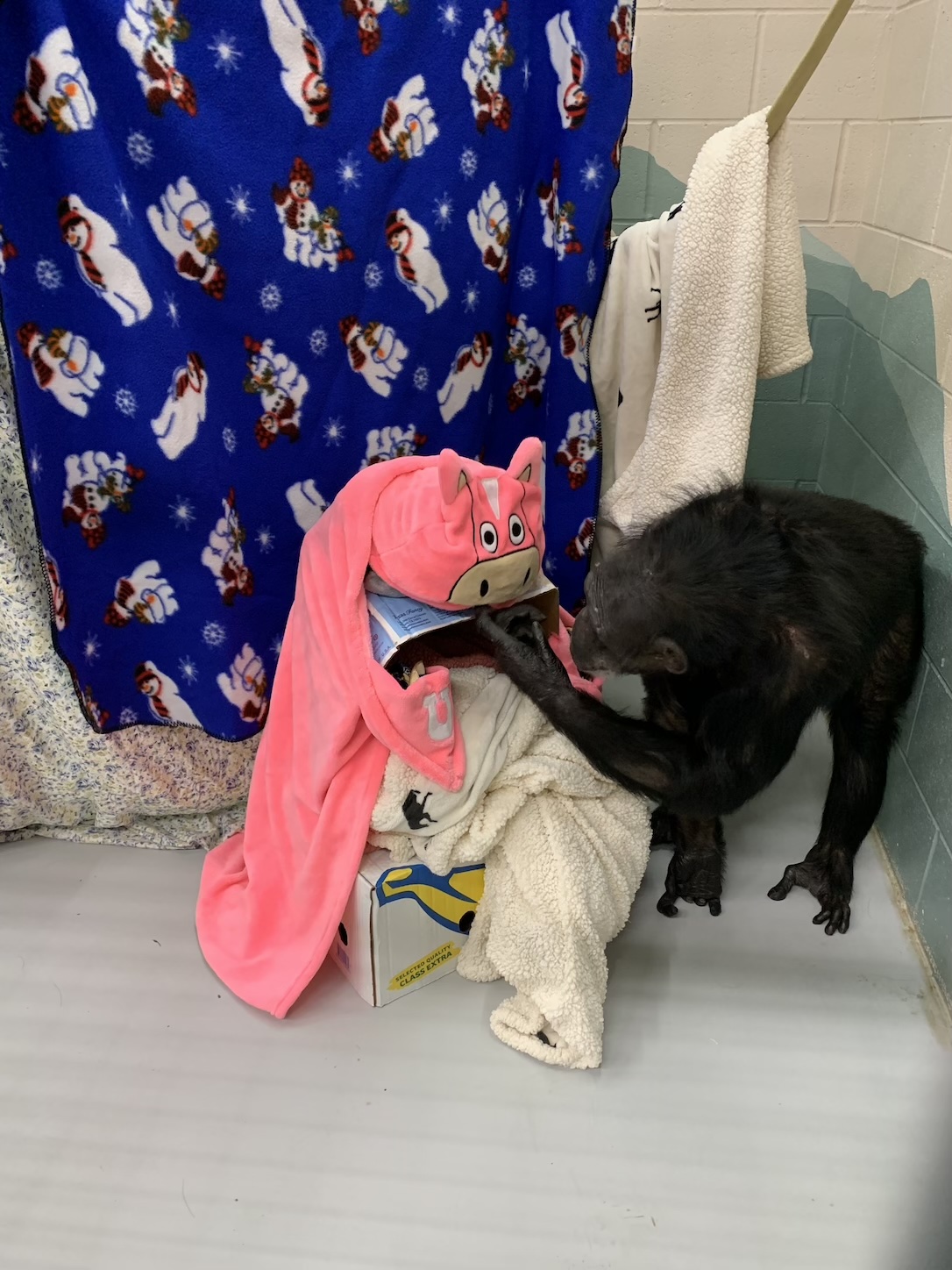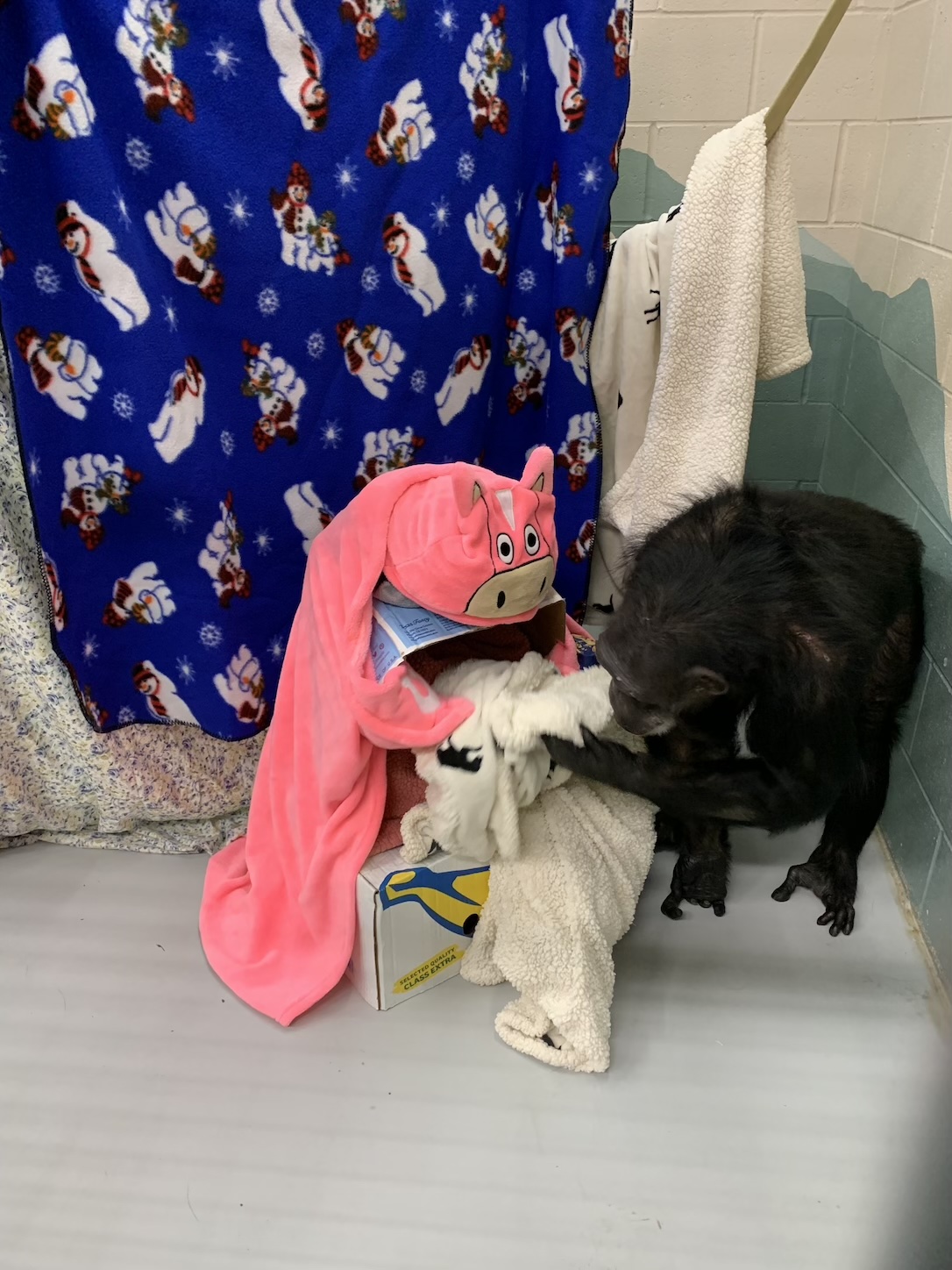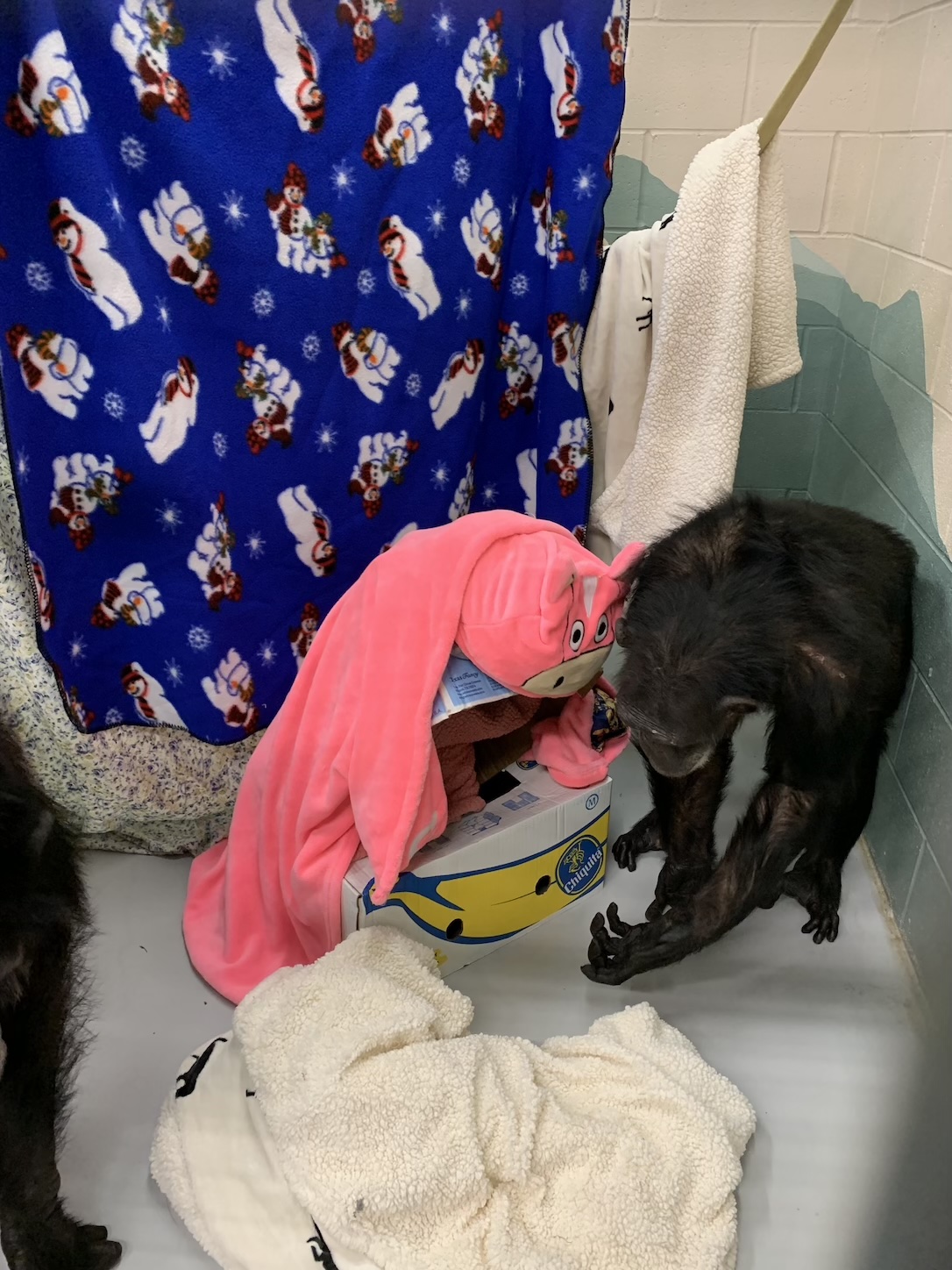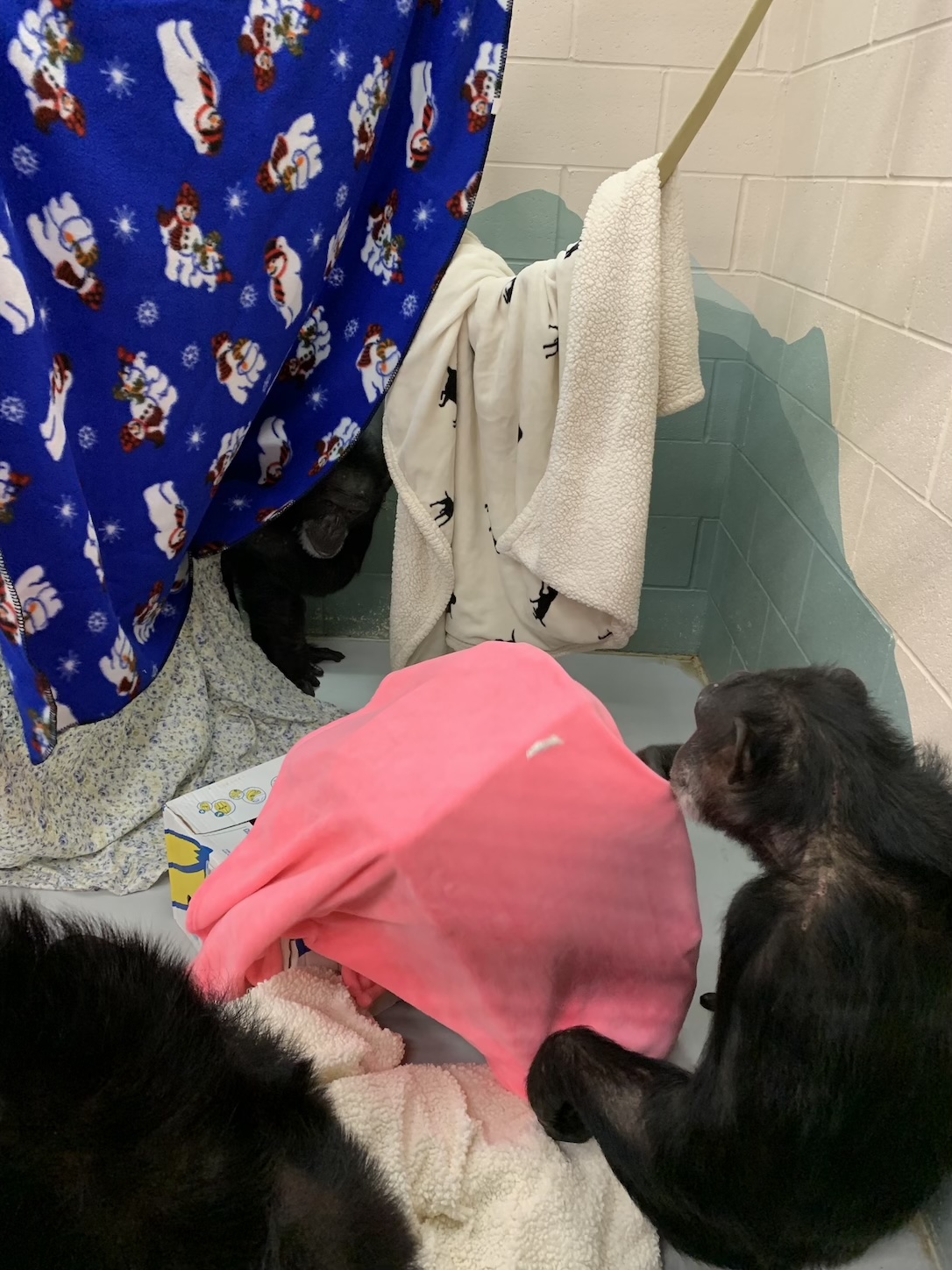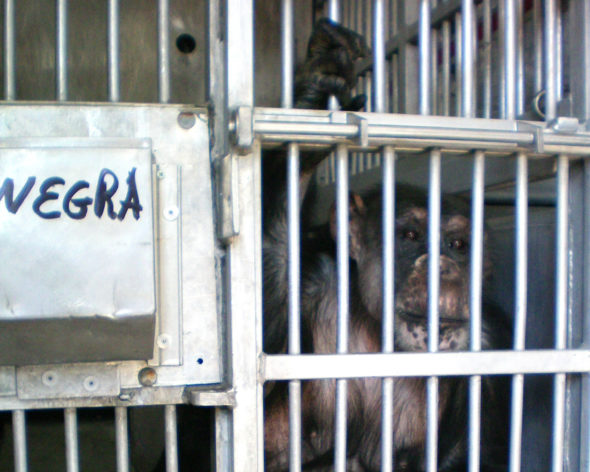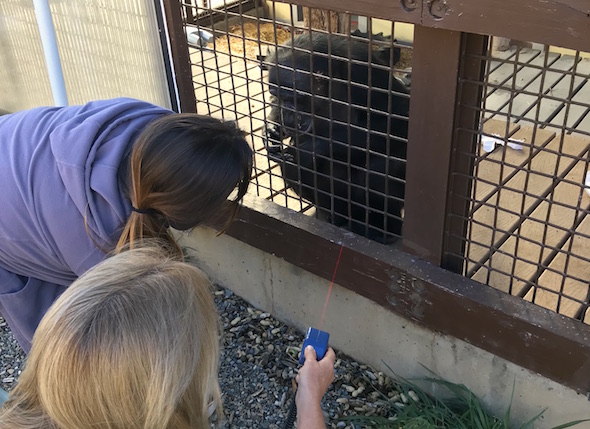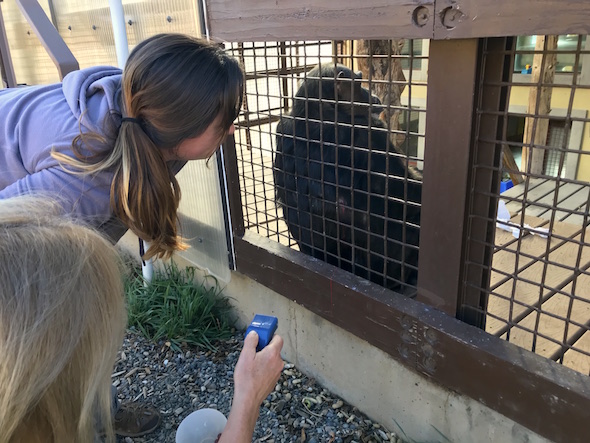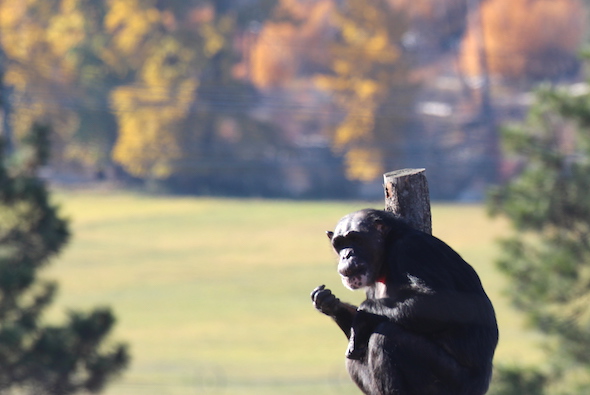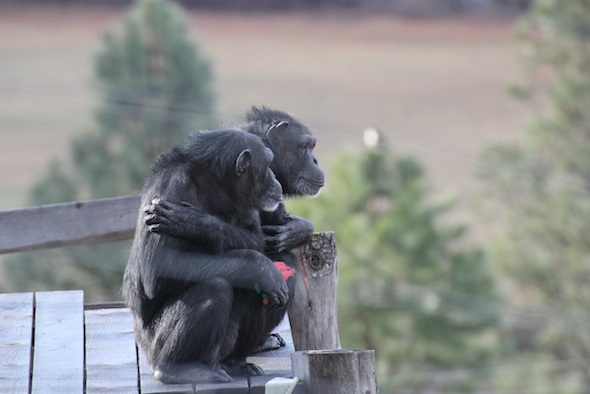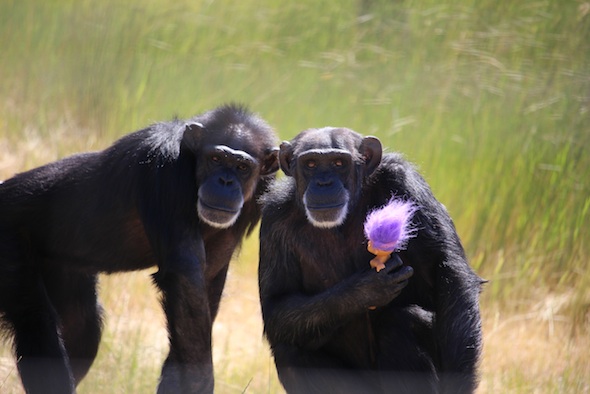 Touch is an integral part of being a chimpanzee. It builds relationships – through grooming, play, embraces, reassurance during a fight or time of stress. It also strains those same relationships – through contact aggression during fights (biting, hitting, kicking), or even the withholding of reassurance from another chimpanzee.
Touch is an integral part of being a chimpanzee. It builds relationships – through grooming, play, embraces, reassurance during a fight or time of stress. It also strains those same relationships – through contact aggression during fights (biting, hitting, kicking), or even the withholding of reassurance from another chimpanzee.
Through it all, physical contact is a basic and important part of being a chimpanzee (and a human). As a human though, touch is generally not so risky. Let’s say you meet someone new, you’re likely to introduce yourself and shake their hand. Touch. But in that moment of shaking hands, you’re probably not worried about the potential of the other person biting off one of your fingers. At least I hope not! Chimps put incredible trust in each other each day, and especially upon meeting new friends. I have witnessed many introductions where chimpanzees meet each other for the very first time, and tentatively approach one another, often with a fear grimace in anticipation (and likely some fear as well), and display an immense amount of trust in this complete stranger by putting their hand in the stranger’s mouth in greeting. Chimps are strong and can be unpredictable, so this show of trust in a stranger is immense. It has amazed me every time I have seen it, knowing chimpanzees and their tendency to settle disputes in a very straightforward manner – by fighting it out. But then, often as quick as it began, the fight is over, they reconcile, and this too is amazing.
I have been thinking about this topic a lot as I have gotten my start as a caregiver here at CSNW. I have found that trust does not come so easily for me. At my former job, we were not allowed any physical contact with the chimpanzees in our care, so it has been an adjustment for me learning how to safely have physical contact with the chimpanzees here at CSNW, and even more so just allowing myself to do so! We learn how to do several different types of protected physical contact with the chimps, which in most part involves allowing them to touch us. We can accept kisses from them on the back of our hand, let them touch or groom the back of our hand, elbow, or knee, and can use our knuckle to rub them when they press their body fully against the caging, so our knuckle does not go through the caging and is protected from potential grabby fingers or chompy teeth.
On day 1 of my learning how to do these new (to me) types of interactions with the chimps, sweet, wonderful Terry was the most patient and kind teacher. Even though I was still mostly a stranger to Terry, he sat and carefully groomed the back of my hand, gave it a kiss, then let me rub his arm with my knuckle. Touch. Friendship. Connection.
It is not so easy with everyone, though – people and chimps included. Understandably, all of the chimps are not so ready to befriend the strangers. They already have human friends, thank you very much! Honey B has been an especially tough cookie to crack, but I keep hoping for a breakthrough. This brings me back to trust. I don’t currently have much when it comes to Ms. B and having physical contact interactions. She is a well known trickster (and we love her for it!), so it can be hard to know when she is genuinely seeking touch and connection in a friendly manner, or trying to draw you into a hilarious prank (for her). These pranks often include spitting whatever she has in her mouth onto her unsuspecting victim, quite the surprise when you were anticipating quality time with her!
I recently was able to have a very sweet and rewarding grooming session with Honey B, where she was very excitedly involved in her grooming task, and very sweet to me throughout. She carefully groomed the back of my hand with her finger, looking for any scratches or imperfections in need of some attention. In this moment, and many others I have had here at the sanctuary already, I felt very fortunate to have this form of connection and bonding with my chimpanzee friends here. It allows for another level of relationship building and the formation of trust from the caregiver in the chimpanzee, versus many other occasions where the chimps have to put trust in us as their caregivers (for example, trusting when we close doors to allow for cleaning that we will not hit them with the doors, or that we will do our best to respect their hierarchy when serving their meals and not cause tension or fighting by serving a low ranking chimpanzee like Annie right next to a high ranking chimpanzee like Jamie). It is very rewarding to be able to connect with our chimpanzee friends in this way, and a privilege I will always be grateful for. I’m looking forward to more interactions and relationship-building to come!
And on to something completely different…we would like to send our thanks to Nancy D. for buying a pink horse wearable blanket for the chimps from our Comfort & Joy Auction! We set it up along with some other blankets and boxes for Cy’s group today, and Honey B was quick to investigate. Please enjoy this series of Honey B vs pink horse blanket…no surprise here, Honey B was the winner!
